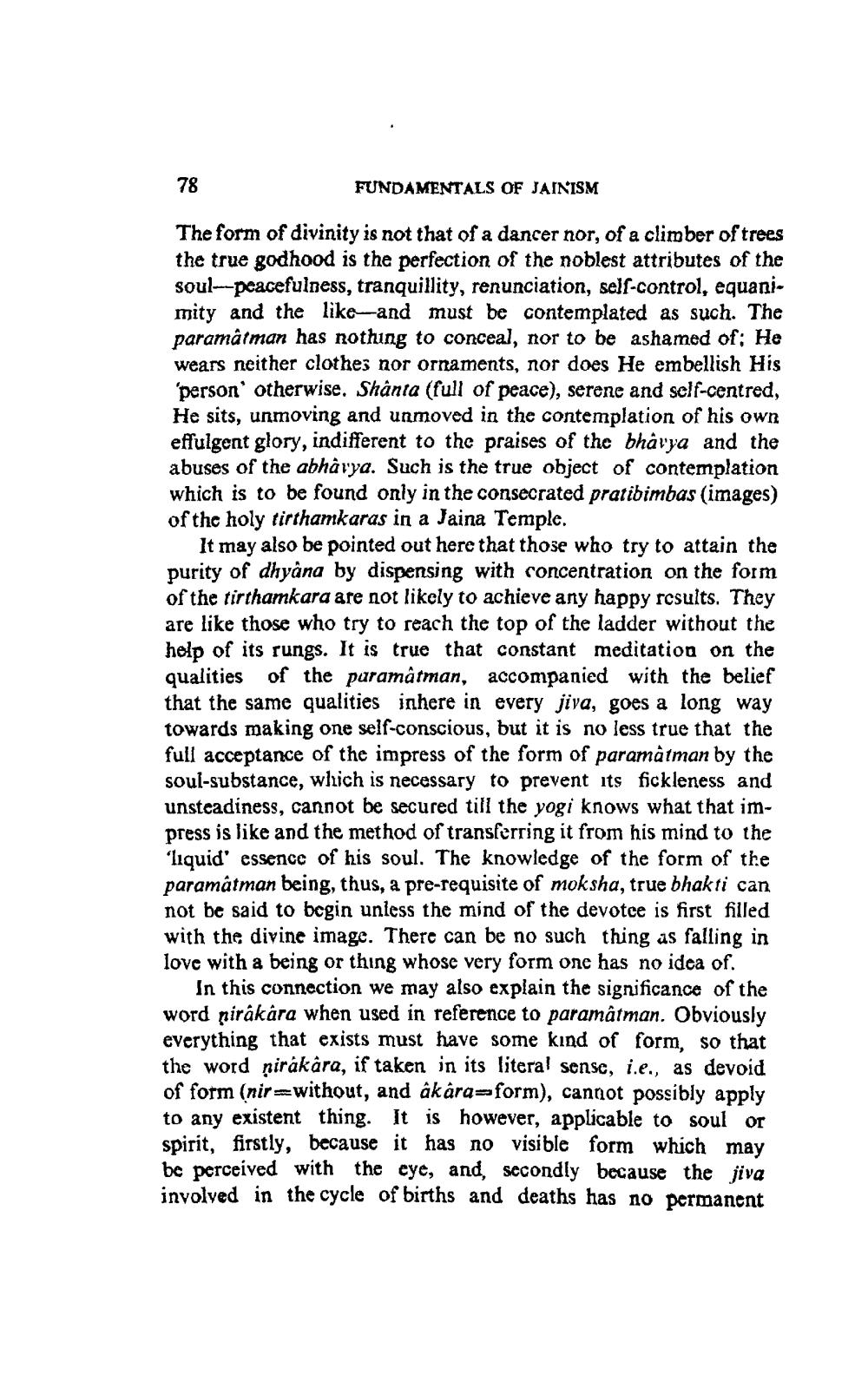________________
78
FUNDAMENTALS OF JAINISM
The form of divinity is not that of a dancer nor, of a climber of trees the true godhood is the perfection of the noblest attributes of the soul--peacefulness, tranquillity, renunciation, self-control, equanimity and the like-and must be contemplated as such. The paramātman has nothing to conceal, nor to be ashamed of; He wears neither clothes nor ornaments, nor does He embellish His 'person' otherwise. Shânta (full of peace), serene and self-centred, He sits, unmoving and unmoved in the contemplation of his own effulgent glory, indifferent to the praises of the bharya and the abuses of the abhàrya. Such is the true object of contemplation which is to be found only in the consecrated pratibimbas (images) of the holy tirthamkaras in a Jaina Temple.
It may also be pointed out here that those who try to attain the purity of dhyana by dispensing with concentration on the form of the tirthamkara are not likely to achieve any happy results. They are like those who try to reach the top of the ladder without the help of its rungs. It is true that constant meditation on the qualities of the paramâtman, accompanied with the belief that the same qualities inhere in every jiva, goes a long way towards making one self-conscious, but it is no less true that the full acceptance of the impress of the form of paramātman by the soul-substance, which is necessary to prevent its fickleness and unsteadiness, cannot be secured till the yogi knows what that impress is like and the method of transferring it from his mind to the 'liquid' essence of his soul. The knowledge of the form of the paramâtman being, thus, a pre-requisite of moksha, true bhakti can not be said to begin unless the mind of the devotce is first filled with the divine image. There can be no such thing as falling in love with a being or thing whose very form one has no idea of.
In this connection we may also explain the significance of the word nirakara when used in reference to paramâtman. Obviously everything that exists must have some kind of form, so that the word nirákara, if taken in its literal sense, i.e., as devoid of form (nir-without, and âk ara=form), cannot possibly apply to any existent thing. It is however, applicable to soul or spirit. firstly, because it has no visible form which may be perceived with the eye, and, secondly because the jiva involved in the cycle of births and deaths has no permanent




